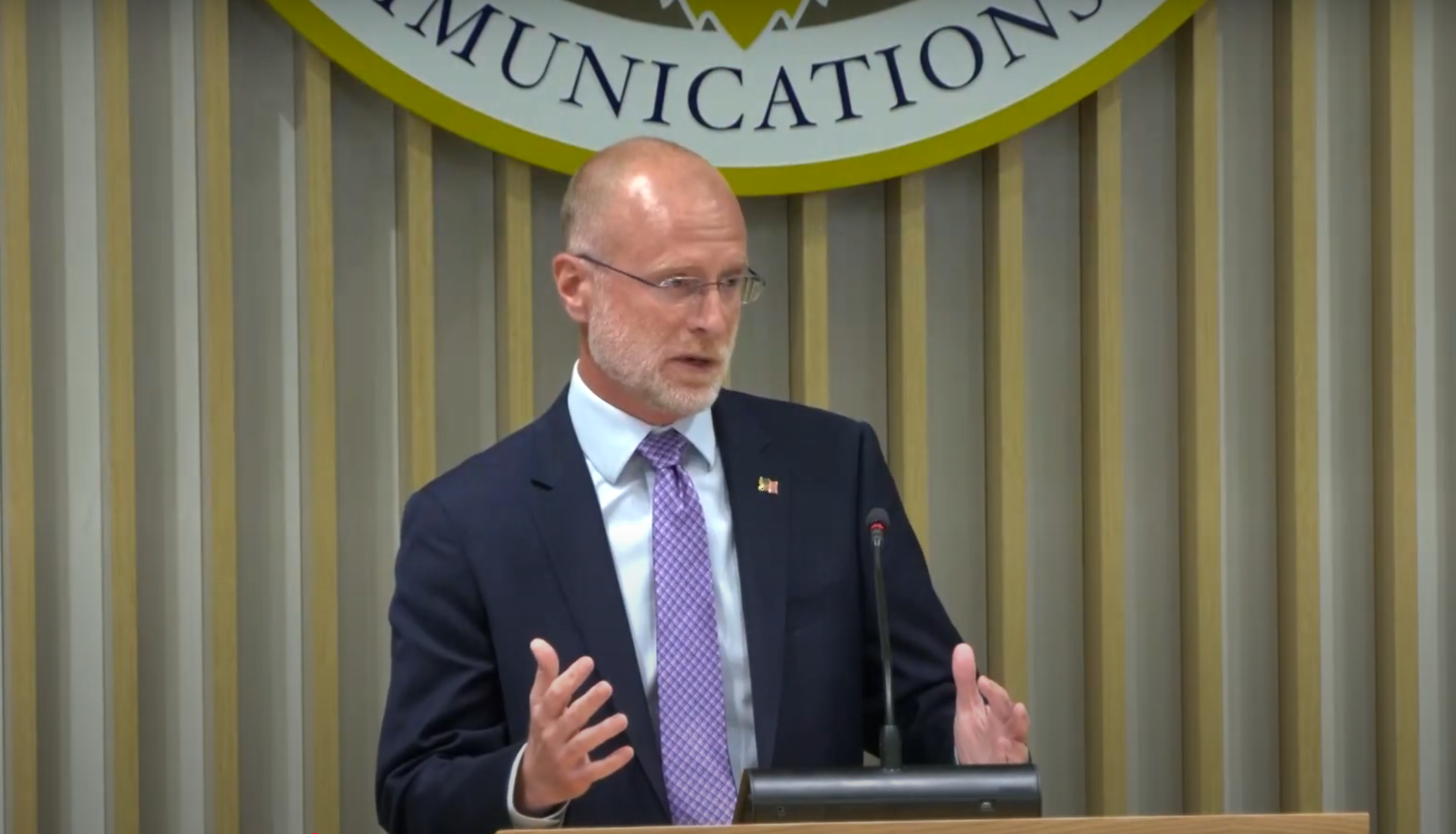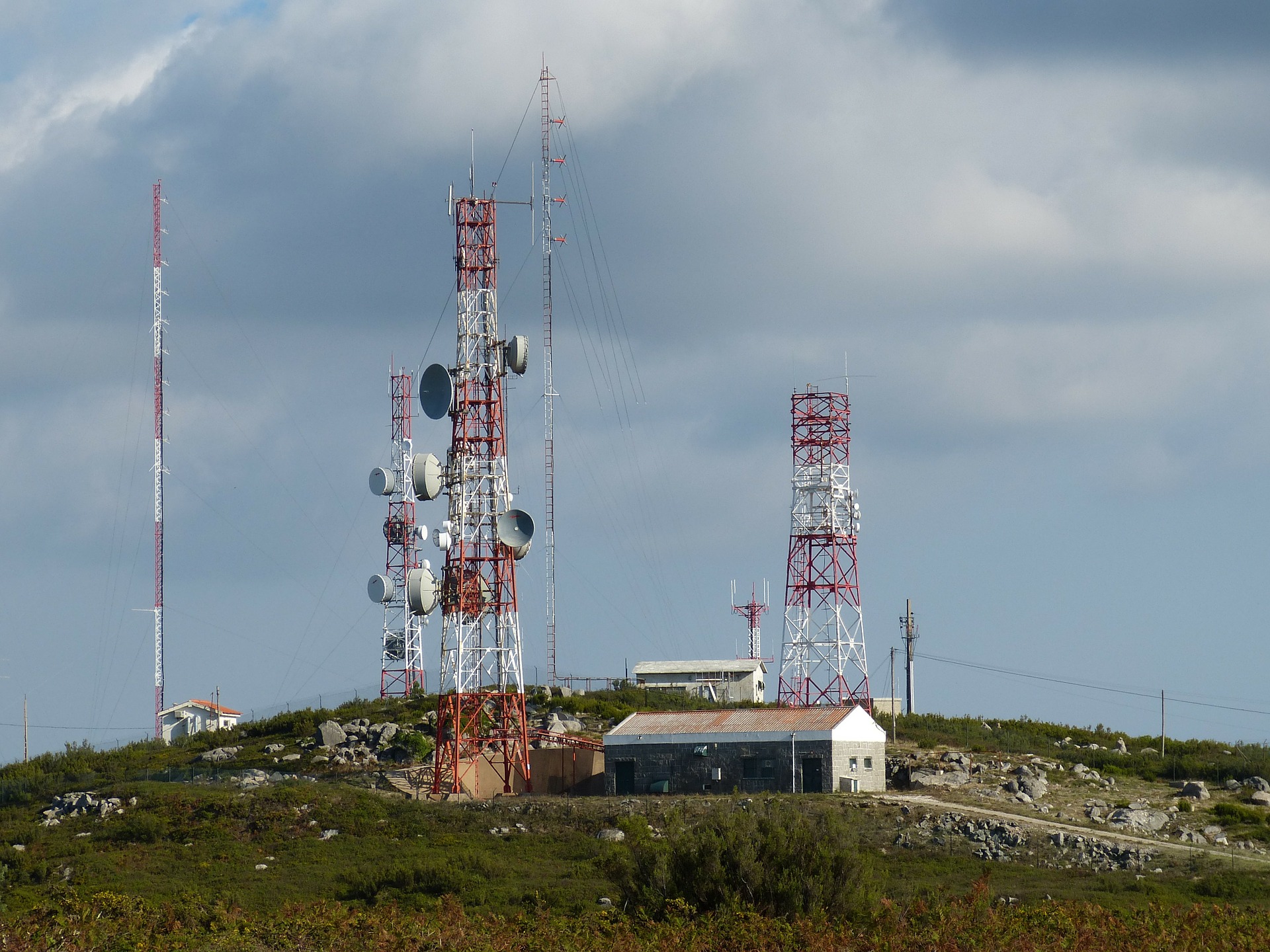FCC Chair Outlines Busy Summer Agenda That Includes Major EAS Vote
‘In three weeks, we will vote to begin a ground-up re-examination of the Emergency Alert Systems,’ Carr said

WASHINGTON—Following up on his first major policy speech just two ago, Federal Communications Commission Chair Brendan Carr is promising to buck the usual summer slowdown in the nation’s capital with a major push to advance his “Build America Agenda” and other policies at the agency.
In a blog laying out some of the FCC's summer plans, Carr emphasized network infrastructure issues, particularly a promise to “consider a proposal to curtail one of the biggest obstacles to building in America: needless and costly environmental reviews,” he said.
The blog made no mention of broadcast ownership rules, NextGen TV broadcasting and some other issues that are top of mind for TV and radio broadcasters.
Carr did stress that the FCC would be voting in July to “eliminate 98 obsolete broadcast rules and requirements—totaling 5,117 words and a little over 12 pages—like 1970s-era regulations dictating the kind of testing equipment radio stations are required to purchase.”
Carr also promised that the agency would be embarking on a major reexamination of Emergency Alert Systems in August.
“In three weeks, we will vote to begin a ground-up re-examination of the Emergency Alert Systems (EAS),” he wrote. “EAS sends life-saving information using TV and radio outlets, and our Wireless Emergency Alerts (WEA) distribute the emergency notices we receive on our mobile phones. With underlying frameworks that are 31 and 13 years old respectively, we think it’s time to explore if structural changes to these systems are needed, with an eye towards making sure we are leveraging the latest technology to save lives.”
Carr did not further elaborate on what those structural changes might be, but he did note that the FCC “will also vote to initiate a review of our system for collecting real-time data on network outages and restoration during and after major disasters. Since its inception in 2007, our Disaster Information Reporting System (DIRS) has proven to be a valuable tool for collecting actionable information to help with recovery efforts. While the DIRS reports are valuable, they can be time-consuming to produce, drawing resources away from responding to an ongoing disaster. The Commission will vote on reforms to streamline DIRS to make sure that its benefits outweigh its burdens.”
The professional video industry's #1 source for news, trends and product and tech information. Sign up below.
Much of the July 16 blog post focused on infrastructure issues and closely followed the themes Carr laid out earlier this month on July 2 in his Build America speech outside a tower training facility in South Dakota.

In the July 16 blog, Carr particularly highlighted his plans to restrict and reduce the impact of environmental regulations, which has also been a major policy priority of the Trump administration and the Supreme Court.
“Specifically, under the sclerotic regulatory regime that has been grafted onto the National Environmental Protection Act or NEPA process, federal agencies spend more time on average (4.5 years) to complete pre-construction environmental impact statements than it took to build the Golden Gate Bridge,” he claimed.
“All three branches of the government realize that the NEPA process is broken,” he argued. “In 2023, Congress reformed NEPA to eliminate many unnecessary reviews and accelerate others. Right after his inauguration in 2025, President Trump directed federal agencies to streamline their NEPA processes to unleash new builds. A few months later, the Supreme Court issued a unanimous ruling to curb NEPA litigation abuse. Now it is time for the FCC to do its part. We will consider a proposal to revamp the FCC’s approach to NEPA and get America building again.”
Our sister publication Radio World noted that there "have been various efforts at the commission across multiple administrations to tweak the EAS system, including several under the recent Biden administration.
In 2021 the commission adopted several rule changes that involved both EAS and WEA. It also explored aspects of using the internet in alerting. In 2023 it required Wireless Emergency Alerts be sent in 13 languages as well as American Sign Language, but the commission has been criticized under the Trump administration for delaying implementation. Multilingual alerts also have long been a goal of some EAS reformers.
Last year the FCC created a new emergency event code for missing and endangered persons. Also, former Chairwoman Jessica Rosenworcel wanted a plan that would require communications providers that participate in EAS or WEA to implement cybersecurity risk management plans.
And as we have been reporting recently, the National Association of Broadcasters has been pushing the FCC to expedite a rule change that would allow EAS functions to be performed in software.
But none of those initiatives involved a full-scale structural review of EAS or WEA."
The full blog and his other policy highlights can be read here.
At the end of the post, Carr also took a swipe at The New York Times for publishing an article on his crackdown on DEI efforts at media companies.
It has come to my attention that the New York Times does not agree with what we are doing at the FCC.My official response: https://t.co/IlWvNSthf4 pic.twitter.com/PunmIYOFqrJuly 14, 2025
George Winslow is the senior content producer for TV Tech. He has written about the television, media and technology industries for nearly 30 years for such publications as Broadcasting & Cable, Multichannel News and TV Tech. Over the years, he has edited a number of magazines, including Multichannel News International and World Screen, and moderated panels at such major industry events as NAB and MIP TV. He has published two books and dozens of encyclopedia articles on such subjects as the media, New York City history and economics.

